All Stories
-
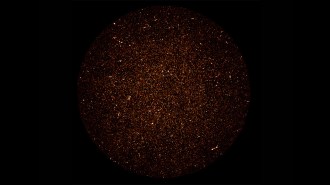 Space
SpaceA new map reveals radio waves from tens of thousands of galaxies
Radio waves from about 17,000 galaxies show that the peak of star formation, about 10 billion years ago, might have been more productive than predicted.
-
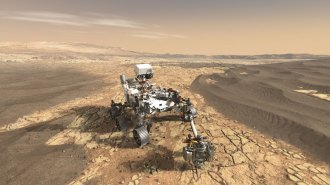 Science & Society
Science & SocietyWhat’s ahead for science in 2020? Here’s what we’re watching
Science News writers are awaiting new Mars missions, a new search for dark matter, results from a male birth control pill study and more.
By Erin Wayman -
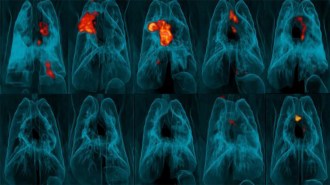 Health & Medicine
Health & MedicineInjecting a TB vaccine into the blood, not the skin, boosts its effectiveness
Giving a high dose of a tuberculosis vaccine intravenously, instead of under the skin, improved its ability to protect against the disease in monkeys.
By Tara Haelle -
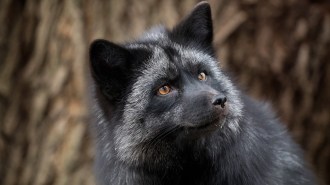 Life
LifeRussian foxes bred for tameness may not be the domestication story we thought
Foxes bred for tameness also developed floppy ears and curly tails, known as “domestication syndrome.” But what if the story isn’t what it seems?
By Jake Buehler -
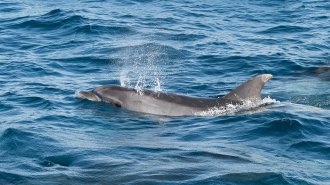 Life
LifeFluid dynamics may help drones capture a dolphin’s breath in midair
High-speed footage of dolphin spray reveals that droplets blast upward at speeds approaching 100 kilometers per hour.
-
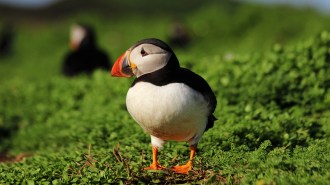 Life
LifeStick-toting puffins offer the first evidence of tool use in seabirds
Puffins join the ranks of tool-using birds after researchers document two birds using sticks to groom, a first for seabirds.
-
 Health & Medicine
Health & MedicineA bioethicist says scientists owe clinical trial volunteers support
Researchers should be aware that many insurance policies do not cover experimental procedures, including side effects that may happen afterward.
-
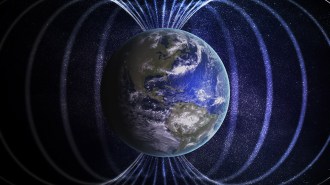
These are the most-read Science News stories of 2019
From carbon nanotubes to vitamin D, Science News online readers had a wide variety of favorite stories on our website.
-
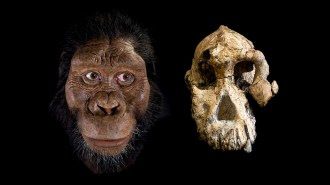 Paleontology
PaleontologyScience News’ favorite fossils of 2019
Fossil discoveries reported this year included Cambrian creatures, ancient bone cancer and a peek at life’s recovery after the dinosaur die-off.
-
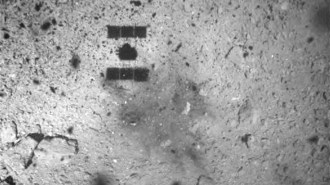 Space
SpaceHow 2019’s space missions explored distant worlds
Planets and asteroids and Arrokoth, oh my. Space probes had a busy year.
-
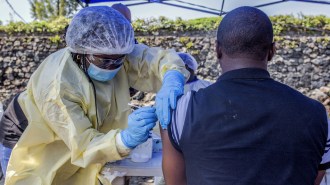 Health & Medicine
Health & MedicineIn a first, an Ebola vaccine wins approval from the FDA
U.S. approval of Ervebo, already deployed in an ongoing Ebola outbreak in Congo, bolsters efforts to prepare for future potential spread of the disease.
-
 Microbes
MicrobesAirplane sewage may be helping antibiotic-resistant microbes spread
Along with drug-resistant E. coli, airplane sewage contains a diverse set of genes that let bacteria evade antibiotics.